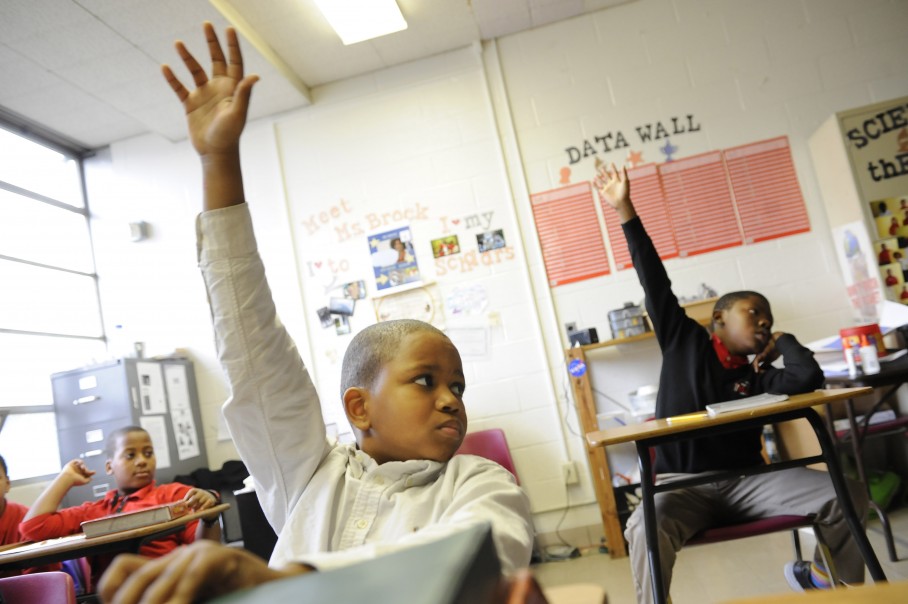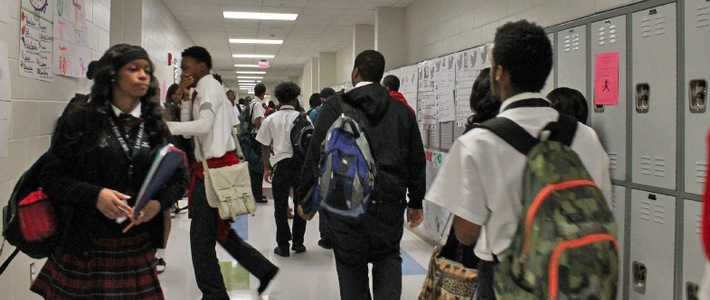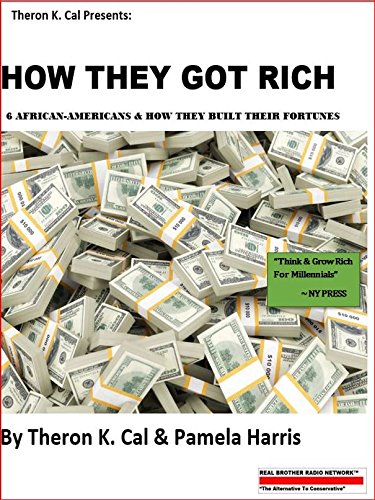
High school is full of, well, high schoolers. We are not naturally the most self-disciplined group. When the bell ending the lunch period rings, for example, students finish socializing and playing with their friends rather than rush to class. At Lake Area New Tech High School in New Orleans, from which I just graduated, we often talked to girls or texted each other instead of studying in our spare time.
But one day I started noticing exceptions. My fifth period history and civics teacher, Mr. Allen, was one of them. When chaos erupted at the end of the lunch hour, he simply opened his door and let his students into his classroom. They filed in respectfully, unlike in other classes. By the time the tardy bell rang, we’d all taken our seats and opened our history books, quietly awaiting further instructions.
Mr. Allen is one of too few black teachers in a school system where about 90 percent of students are black, and I think that shared background helped explain our behavior. Many other teachers cannot control their classes, let alone get their students interested in the work. Mr. Allen can do both.
In my school, as in many schools — especially in reform-oriented school districts — a lot of the good, black teachers have been replaced by younger white teachers. Before Hurricane Katrina in 2005, nearly 75 percent of the city’s public school teachers were black.

Sullivan: “Black Teachers motivate and inspire us”
That began to change after Katrina, when charter schools began to grow in number. The percentage of minority teachers across New Orleans public schools dropped from 60 percent to 54 percent between 2010 and 2013, according to data compiled by Tulane University’s Cowen Institute for Public Education Initiatives. This troubles me. Particularly upsetting to me was the departure of the music teacher, a veteran black educator who helped run the New Tech school choir and put together trips for students.
When I talked to administrators about the departures of good black teachers, I was told that students need diversity in order to receive a high quality education. The school principal, who is black, has pointed out that a majority of the teachers are still black — a higher percentage than at some other New Orleans charter schools. He also pointed out that students are not always privy to the reasons teachers depart, and some might have chosen to leave.
Students do need diverse educational experiences, but that diversity doesn’t need to be about a teacher’s race. Hiring more white teachers is not the best way to improve education for students, particularly students of color.
Mr. Allen provided his students with diverse learning experiences by engaging them in many different ways. Some days we read and took notes, some days we watched video clips and had open-ended discussions. He understood not just a variety of teaching methods but also the city of New Orleans and its many different problems and inhabitants. While Mr. Allen could have become a teacher without this insight — as many young (and often white) arrivals here have done — it better prepared him to teach and connect with students. He talked openly, for instance, about his own experiences growing up in New Orleans. And he used language and cultural references that we recognized to challenge and inspire us, including quoting a song by rapper Gucci Mane. Mr. Allen raised the self-esteem and confidence of his students in all of his classes, and he gained the respect and trust of his students to a degree that allowed him to keep our attention and focus on what we were learning. This was something that many teachers, both white and black, have great difficulty doing.
The problem of diversity is becoming more difficult here as more and more teachers from outside of the neighborhood and the city take local teaching jobs. The Orleans Parish School Board fired all of its teachers following the storm, and the new charter and state-run schools that replaced the old ones relied heavily upon programs such as Teach For America, who mostly import teachers from other parts of the country. Although there’s no data yet breaking down the shifting percentages of local versus native teachers, Doug Harris, the director of the Education Research Alliance for New Orleans, said “the teacher workforce is certainly more heavily white and less African American than it used to be.” Harris’ research alliance plans to release the first detailed report on changing teacher demographics in the city next fall. The fact that the city’s public schools now accept students from all over the city only makes this problem worse since it breaks the connection between schools and their neighborhoods.
This problem will worsen if local teaching jobs continue to be outsourced to teachers who are unfamiliar with the city and tend to come from much more privileged backgrounds than the students they serve. For example, the most recent annual report from the Cowen Institute states that 89 percent of the students attending public schools in New Orleans during the 2012-2013 school year were black and that 82 percent of all students qualified for free or reduced price lunch, a common measure of poverty. A teacher like Mr. Allen, who grew up in New Orleans and has seen firsthand what students go through, will have a better time connecting with them than one who hasn’t.
Truly understanding the environment that students come from – rather than just knowing the statistics that describe their lives – can benefit teachers and students. I firmly believe that having more local teachers and more teachers who understand the city’s social and political problems can provide students with the training they need to be successful as students and as adults. If we replace tactics such as hiring teachers from outside of the city or state with methods that focus on hiring qualified local teachers, we can greatly improve the quality of education.
This essay is part of a collaboration between The Hechinger Report, a nonprofit, nonpartisan news outlet based at Teachers College, Columbia University, and high school students at Bard’s Early College in New Orleans.

©Copyright 2014 RBRN ALL RIGHTS RESERVED


 By Glenn Sullivan
By Glenn Sullivan